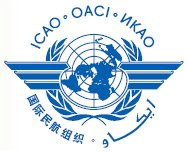ICAO - Uniting International aviation on climate change

Under ICAOs leadership, aviation has produced the first, and to date, only globally-harmonized agreement designed to address climate change on a global basis from a specific sector and ICAO is in the best position to effectively and systematically address the impact of international aircraft emissions on climate change, said Roberto Kobeh González, President of the International Civil Aviation Organization (ICAO) Council today at the United Nations Framework Convention on Climate Change meeting in Copenhagen.
The remarkable progress of aviation in reducing the impact of engine emissions over the past 40 years is the result of consensus building and cooperation among the 190 Member States of ICAO and sustained efforts of the air transport industry, he added.
We look to the outcome of COP 15 to deliver an agreement that acknowledges the importance of all States working through ICAO towards the achievement of an environmentally sustainable aviation, he emphasized.
In October, a high-level meeting of ICAO Member States representing 93% of global commercial air traffic reached agreement on further reducing aviations impact on climate change, in cooperation with the air transport industry, through:
A global goal of 2 % annual improvement in fuel efficiency until the year 2050;
Development of a global CO2 standard for aircraft;
Development of a framework for market-based measures in international aviation;
Submission of States action plans and annual reporting on CO2 emissions to ICAO; and
Measures to assist developing States and to facilitate access to financial resources, technology transfer and capacity-building.
This agreement will be submitted in the fall of 2010 to the ICAO Assembly, the plenary body of the 190 Members States, as part of the continuous drive to facilitate internationally harmonized solutions.
In addition, an ICAO global framework on the development and implementation of alternative fuels, particularly drop-in fuels, for aviation worldwide was adopted in November. This development has positioned aviation to be the first sector to use sustainable alternative fuels on a global basis.
According to the IPCC fourth assessment report, total CO2 emissions from the aviation sector account for approximately 2% of global emissions from human activity about 60% of which is related to international air travel. The projected growth in public demand for air transport in the years to come could exceed our capability to limit the impact of air travel on climate change unless we continue this progressive course of developing and implementing bold and effective solutions, Kobeh said.
Based on the tangible global results the ICAO process has achieved thus far, I am convinced that the best approach to effectively addressing aviation climate effects is by the States of the world working through the global forum that is ICAO to further develop an environmentally sustainable international aviation system. he concluded.


.jpg)


.png)





Comments
There are no comments yet for this item
Join the discussion